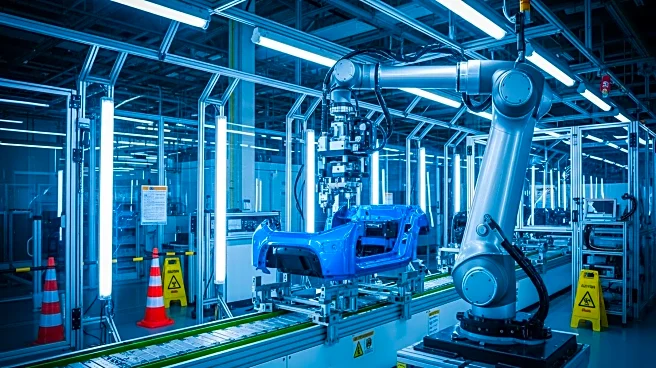What's Happening?
The United Auto Workers (UAW) has declared a narrow victory in the unionization vote at Ford's BlueOval SK plant in Kentucky, with 526 workers voting in favor and 515 against. However, 41 challenge ballots remain disputed, which could affect the final outcome. The UAW has urged Ford to recognize the decision and criticized the challenge ballots as tactics to undermine the election results. The unionization effort was driven by safety concerns and demands for better wages and benefits. The plant, a joint venture between Ford and SK On, currently employs 1,450 workers and plans to expand to 5,000 employees.
Why It's Important?
Unionization at the BlueOval SK plant represents a significant development in the UAW's efforts to expand its presence in the southern United States, particularly in the EV sector. Successful unionization could lead to improved working conditions and benefits for employees, setting a precedent for other EV battery plants. This move comes at a time when demand for EVs is fluctuating, and Ford is seeking to manage surplus battery production. The outcome of this vote could influence labor relations and manufacturing strategies in the automotive industry.
What's Next?
If the unionization is confirmed, BlueOval SK will become the fourth EV battery plant to unionize in the U.S., potentially impacting Ford's operations and labor negotiations. The plant's expansion plans could be affected by the union's demands, and Ford may need to address the disputed ballots to finalize the election results. The broader implications for the UAW's southern expansion efforts and the EV industry will depend on how Ford responds to the unionization.
Beyond the Headlines
The unionization effort at BlueOval SK highlights ongoing labor challenges in the automotive industry, particularly in the transition to electric vehicles. Safety concerns and labor rights are becoming increasingly important as manufacturers adapt to new technologies and production methods. This development may prompt other companies to reevaluate their labor practices and engagement with unions.










